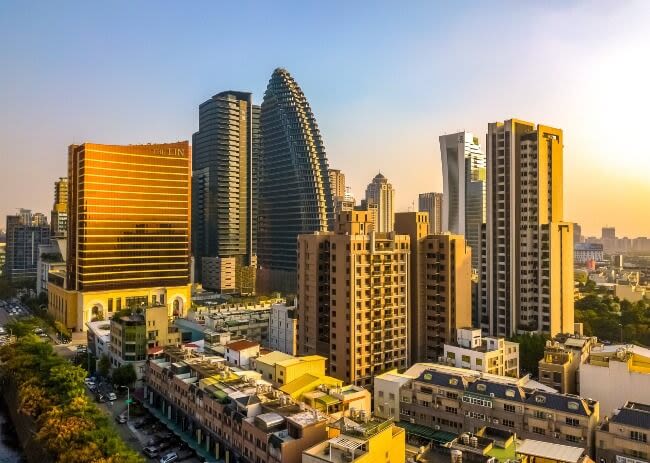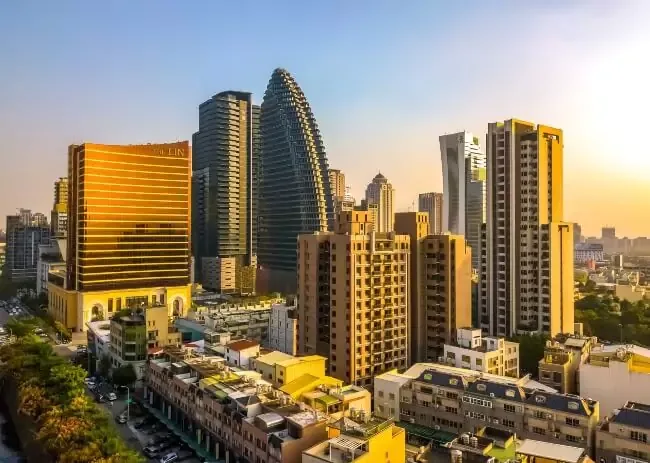
Taiwan
Welcome to Taiwan
Traveling to Taiwan? You may need a visa – find out if you do, which type, and how to apply so you can get the paperwork out of the way and focus on your trip.

What’s a Taiwan eVisa and who’s it for?
Who’s the Taiwanese eVisa for?
The eVisa is available for travelers from the following countries:
-
Bahrain
-
Bosnia and Herzegovina
-
Burkina Faso
-
Colombia
-
Dominica
-
Ecuador
-
Kiribati
-
Kosovo
-
Kuwait
-
Mauritius
-
Montenegro
-
Oman
-
Panama
-
Peru
-
Qatar
-
Saudi Arabia
-
Solomon Islands
-
Turkey (also eligible for a visa on arrival)
-
United Arab Emirates
Travelers from the following countries may apply for a single-entry eVisa for a maximum stay of 30 days if they are traveling with an approved tour group:
-
Cambodia
-
India
-
Indonesia
-
Laos
-
Myanmar
-
Vietnam
Who’s not eligible for a Taiwanese eVisa?
-
Travelers who are visa-exempt for Taiwan can get a visa on arrival or can apply for the Taiwan Travel Authorization instead. Use our Visa Checker Tool to find out more.
-
Taiwan grants visa-free access to holders of passports of all states with full diplomatic relations.
What’s the purpose of a Taiwanese eVisa?
Tourism and business.
How long can you stay with a Taiwanese eVisa?
The Taiwanese eVisa is a Single entry visa with a max. allowed stay of up to 30 days in total. You must enter the country within 90 days after the visa is issued.
What’s a Taiwan Travel Authorization and who’s it for?
Who’s the Taiwan Travel Authorization for?
Citizens of Cambodia, India, Indonesia, Laos, Myanmar, and Vietnam can apply online for a no-fee Travel Authorization Certificate for multiple 14-day visits to Taiwan within its 90-day validity, provided they have not been employed as guest workers in the country and have one of the following documents:
-
A valid resident or permanent resident card or a valid entry visa (it may be an electronic visa) issued by Australia, Canada, Japan, Korea, New Zealand, any of the Schengen countries, the United Kingdom, or the United States.
-
A Taiwanese resident card, entry visa, or alien resident certificate issued that has expired less than 10 years before the date of arrival in Taiwan is also acceptable.
What’s the purpose of a Taiwan Travel Authorization?
Tourism, business meetings, or visiting friends and family.
How long can you stay with a Taiwan Travel Authorization?
The maximum stay is 14 days per entry during the 90-day validity, and it’s a Multiple entry document.
What’s a Taiwan Visa on Arrival and who’s it for?

Who’s the Taiwan Visa on Arrival for?
At the time of writing, only Turkish citizens can get a Visa on Arrival for Taiwan. The Visa on Arrival is only available at Taiwan Taoyuan International Airport.
What’s the purpose of a Taiwan Visa on Arrival?
Tourism, business meetings, or visiting friends and family.
How long can you stay with a Taiwan Visa on Arrival?
The maximum stay is 30 days, and it’s a single-entry document.
What are the Taiwanese long-term visa options?

Taiwan offers several long-term visa options for various purposes, such as employment, study, business, and residence. Here are some of the common long-term visas:
-
Work Visa: For those employed by a Taiwanese company, requiring an additional work permit.
-
Student Visa: For those accepted into Taiwanese educational institutions.
-
Family Reunification Visa: For joining family members residing in Taiwan.
-
Entrepreneur Visa: Encouraging foreign business establishment in Taiwan.
-
Working Holidays Visa: For 18-30-year-olds from countries with a Working Holiday Scheme with Taiwan, allowing work up to 1 year.
-
Digital Nomad Visa: For foreigners working remotely from Taiwan.
At iVisa, we don’t currently offer these visas, but you can find out more from the nearest Taiwanese Embassy or Consulate.
Staying healthy in Taiwan: Here’s what you need to know
Healthcare facilities and standards in Taiwan can vary significantly depending on the location and the type of facility. Here's what travelers should know.
Make sure to stay updated on routine vaccines
-
Ensure routine vaccines, such as influenza, measles-mumps-rubella (MMR), varicella, and polio, are up to date.
-
Vaccinations for hepatitis A and typhoid are also recommended due to food and water risks.
-
Keep updated with Taiwan's COVID-19 requirements, such as quarantine, testing, or vaccine certificates, through your airline or the Taiwanese government website.
Medical facilities
-
Taiwan boasts high-quality healthcare facilities, particularly in major cities. Hospitals are well-equipped and most doctors speak English.
-
Pharmacies are widely available, and many drugs that require prescriptions in other countries are available over the counter.
-
Dental care in Taiwan is of high quality and more affordable than in many Western countries.
-
Traditional Chinese medicine is widely practiced and available alongside conventional medicine, but make sure to go to a reputable provider.
Health insurance
We’d always recommend taking out health insurance before you travel anywhere from any destination.
Contact your insurance provider before traveling to make sure you have the right level of coverage.
Other things to consider:
-
Trip cancellation, delay, and interruption benefits.
-
Medical expenses and medical evacuation benefits.
-
Baggage coverage.
Things to be aware of when visiting Taiwan
Keep an extra eye on the following to keep healthy and safe during your trip to Taiwan:
1. Air quality: Urban areas may have poor air quality, so those with respiratory issues should take necessary precautions.
2. Mosquito-borne illnesses: Be cautious of mosquito-borne diseases like dengue fever, especially in urban and residential areas. Use insect repellent and wear long-sleeved clothing.
3. Natural disasters: Taiwan is located in a seismically active zone, so earthquakes are a common occurrence. Taiwan also experiences typhoons, especially between July and October. Familiarize yourself with safety procedures in case of a natural disaster.
Medication for personal use
Follow these tips to bring into Taiwan some over-the-counter medicines:
-
Declare all medications: Report all medication for personal use to customs authorities.
-
Original packaging: Always keep medicines in their original containers and in transparent bags in your hand luggage.
-
Prescription or doctor's letter: Present the medical prescription issued by your doctor or other competent authority, in English.
-
Check for restrictions: Call Taiwan's embassy to verify that all of your prescription(s) are legal to bring with you.
-
Quantity aligned with itinerary: Bring only a reasonable quantity that aligns with the duration of your stay to avoid complications.

 Australia ETA Online
Australia ETA Online
 United Kingdom ETA
United Kingdom ETA
 India Tourist eVisa
India Tourist eVisa
 Canada ETA Visa
Canada ETA Visa
 Turkey eVisa
Turkey eVisa
 Egypt eVisa
Egypt eVisa
 Singapore SG Arrival Card
Singapore SG Arrival Card
 Indonesia eVoa Visa
Indonesia eVoa Visa
 Aruba ED Card
Aruba ED Card


